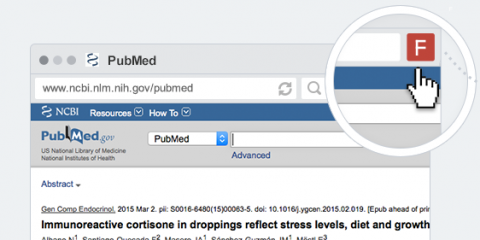Hermann Agis is Head of the Competence Center for Tissue Engineering and Cell-Based Therapies, University Clinic of Dentistry, MedUni Vienna. In this blog, he describes the benefits of F1000Workspace and how incorporating it into his team increased efficiency.
Joao Peres, Senior Product & UX Manager, F1000Workspace, talks us through the improved features that will help you with all your projects, talking you through the dashboard revamp, annotating articles and writing with LaTex.
The weather has decided to get warm just in time for June, and the F1000 crew is ready to enjoy some sunshine. We will be visiting Philadelphia in the Keystone State for the Special Libraries Association (SLA) meeting, as well as Boston in the Bay State, for the American Society for Microbiology conference – ASM Microbe. Then on to the Sunshine State, and more precisely Orlando, for the American Library Association’s (ALA) Annual Meeting.
The internet has given us access to vast resources of knowledge; we have an ever-growing number of journals, publications and blogs at our disposal. Keeping up with this endless stream of exceptional supply of information can be tough, how many times you find something interesting to read, but don’t have time to read it right…
We regularly add new features to F1000Workspace – some big, some small. Here is a list of some of the updates to F1000Workspace in the last few months: Proxy support: If you access journal articles off-campus with a proxy, this now also works within F1000Workspace. Reading list: Have you saved an article but not yet…
With over a million reference uploads and a recent mention in a Nature article, F1000Workspace is being used by thousands of biomedical researchers. Here’s 10 top reasons why: 1. Designed for scientists F1000Workspace was designed and tailored for biomedical scientists to help radically improve how scientific papers are collaborated on and written. 2. One-click reference…
Since we launched F1000Workspace earlier this year, thousands of researchers and clinicians have signed up for our suite of tools to help them keep track of the articles they’ve read, discover new articles, collaborate with co-workers and write their articles. Together, they have now saved more than one million references to their F1000Workspace projects! That’s…
Rachel Moore is a postdoc at King’s College London. Being local to our London office, where most of F1000’s developers work, Rachel had the unique opportunity to help us test and develop F1000Workspace from the very early stages. This interview was previously included in the monthly newsletter for F1000 Specialists. If you’d like to join,…
One of the trickier aspects of writing a research paper is collaborating with co-authors, especially since you may not always be in the same city or country. F1000Workspace makes this much easier – you can create shared projects and invite co-authors, share a manuscript, and even discuss and annotate articles so that you’re all on…
Hunting for references while you’re writing? Save time with F1000Workspace. Our Word plug-in allows you to find relevant citations without even leaving Word. Whilst you’re writing, simply open up the ‘F1000’ tab in Word. From here, you can directly search PubMed, all F1000Prime article recommendations, and your own saved references or projects on F1000Workspace. F1000Workspace…








